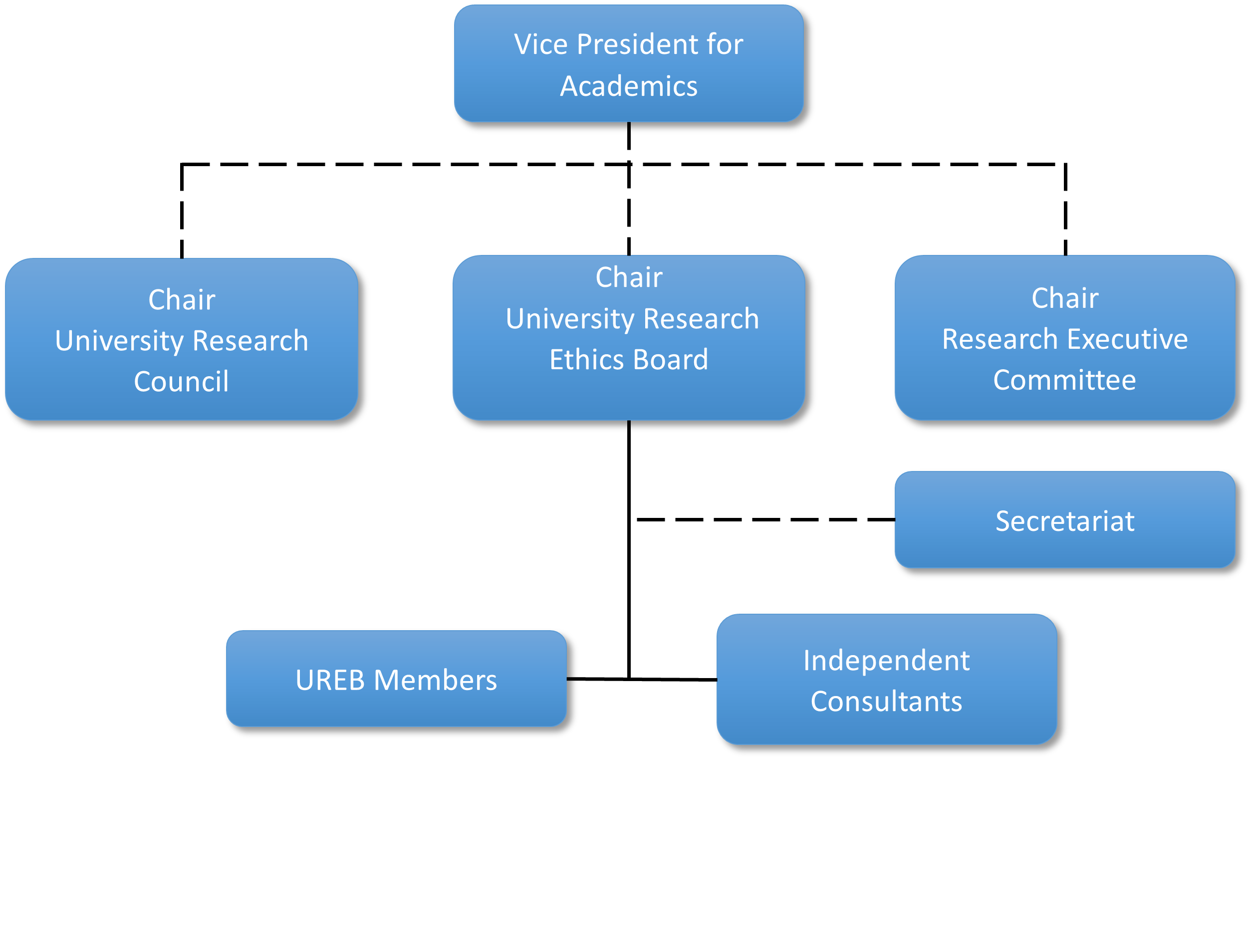The University Research Ethics Board (UREB) ensures transparency and quality assurance on the conduct of research within the University and outside by USL faculty, staff, and students, as well as outsider-researchers. The ethics board guarantees strict adherence to the protection of participants in research endeavors. Specifically, the UREB is designated as an advocate for the protection of safety, rights, and the general well-being of human-participants through reviewing the concept and methods of the research study and approving its conduct. Adapted and mirrored from Article II Section 13 of Republic Act 10532, also known as The Philippine National Health Research System Act of 2013, the UREB ―shall address concerns relating to health research agenda, development of human resource in health research, conduct of researches, dissemination of research results, research utilization, resource mobilization, leadership and management. This Standard Operating Procedures (SOP) details the functions, structure and the guidelines and procedures that the UREB adheres to for the ethical review of all research protocols submitted within and outside USL.
ORGANIZATIONAL STRUCTURE

SUBMISSION PROCESS
Research protocols or proposals involving the use of human participants/ respondents should undergo review and clearance from the UREB before implementation of data collection procedures. Submission for research protocols/ proposals for review may be done personally via the UREB Secretariat in the URDC Office or electronically through email at urdc_chrd@usl.edu.ph or via Google Form https://forms.gle/XiAxctUyJN6xGrvm9.
- 1. The researcher/s submits an electronic or soft copy (PDF Files only) OR 1 hard copy (to be placed in a clear long plastic envelope) of the Study Protocol Package containing the following documents:
- Letter of Intent for Review/ Cover Letter;
- Study Protocol/ Research Proposal Manuscript (USL research protocols must follow the correct format and structure);
- FM-URB-2.1 Protocol Submission Checklist;
- A duly filled and signed FM-URB-2.2 Research Protocol Application Form
- FM-URB-2.3 Protocol Review Assessment Form;
- Informed Consent in English and Dialect of Participants
- FM-URB-2.4 - Informed Consent Form (ICF) Checklist
- Assent Form (if necessary for protocols whose participants are children)
- Data Collection Forms or Link of electronic survey forms (if applicable)
- Study Budget
- Curriculum Vitae of Primary Investigator
- Ads for respondent recruitment (if applicable)
- FM-URB-2.5 Document Receipt Form
- NCIP Clearance (if applicable)
- Site Profile (if applicable)
- The USL-UREB Secretariat receives the submitted Study Protocol Package (via electronic mail or personally depending on the manner of submission by the researchers), and endorses to the Chairperson.
- The USL-UREB Chairperson assigns one (1) reviewer based on the initial assessment of the research, and whose expertise are appropriate to the nature of the study/submission. External consultants may be sought to review if the research requires a certain expertise.
- The review process may take 2 to 4 weeks depending on the type of review recommended.
- After the decision has been made, the Secretariat will communicate via email the board’s decision and corresponding actions that need to be taken by the researchers if applicable.
TYPES OF PROTOCOL REVIEW
The USL-UREB Chairperson assesses the protocol to determine the type of review based on the following guidelines:
EXEMPT FOR REVIEW
- Protocols that neither involve human participants nor identifiable human tissue, biological samples, and data (e.g. meta-analysis) shall be exempted from ethical review
- Provided that the following do not involve more than minimal risks or harms;
- Protocols for institutional quality assurance purposes, evaluation of public service programs, public health surveillance, educational evaluation activities, and consumer acceptability tests,
- Research that only includes interactions involving survey procedures, interview procedures, or observation of public behavior (including visual or auditory recording) if the following criteria are met:
- There will be no disclosure of the human participants’ responses outside the research that could reasonably place the participants at risk of criminal or civil liability or be damaging to their financial standing, employability, or reputation; and
- The information obtained is recorded by the investigator in such a manner that the identity of the human participant cannot really be ascertained, directly or through identifiers linked to the participants.
- Protocols that involve the use of publicly available data or information.
EXPEDITED REVIEW
- The research poses low risk that requires personal information
- The study does not involve vulnerable populations.
- The study does not involve the collection of stigmatizing information.
- The study uses anonymized or archived samples.
- Laboratory research that anonymized human tissue/specimen
- Retrospective research using anonymized data or archived samples from medical records
- Continuing review of clinical trials that do not involve further recruitment of participants.
- Continuing review of studies previously classified under expedited review.
- Study protocol amendments that are administrative in nature and do not affect the study protocol.
FULL BOARD REVIEW
- Human health research involving medium to high risks to human participants
- Intervention studies involving experimental treatments like clinical trials
- May involve vulnerable populations who should be protected
- Involves private information that may cause stigma.
